K.C. Sprayberry's Blog, page 158
February 15, 2016
The Interview Part 2 ~ Mannerisms To Avoid
Congratulations! You’ve arrived at your interview looking like the professional you are. The host/hostess is well taken with how you look. Now is the time to remember the rules of a successful interview as they apply to the time you’ll be on the air or speaking with a reporter.
We’ll discuss a few of these here.
Check your bubblegum at the door, or more specifically, wrap and drop in the nearest trashcan. I recently viewed an interview with an actor I’ve admired since my childhood. He was chewing gum openmouthed. This is bad enough when you’re in a small group of people, but imagine your potential new fans catching this and seeing you trying to resemble a cow chewing its cud.
Nothing is more disgusting than dangling bits from your nose. Always make sure that you don’t have that problem by checking your reflection seconds before going on.
Posture is everything in an interview. We all slouch, but, especially in a television interview where the camera magnifies everything, it looks awful. As your mom no doubt said many times while you were growing up, sit up, be proud, and smile!
If you’re facing your interviewer, be sure you make eye contact. Or with the camera, if you’re doing a television interview. This simple gesture makes the person you’re speaking with feel important, and that’s essential in helping you to gain new fans. They’ll think you believe they are an vital part of the success of your book.
Talking too softly will have the interviewer asking you to speak up or repeat what you just said. It’s important that you speak in a normal voice with an even tone. Yes, the experience of being interviewed can be as scary as giving a presentation but as an author, you need to make yourself heard when you’re talking about your book. How else will everyone discover how wonderful it is?
All of us do this. Those darned words just slip out of our mouths without thinking at times. Now is a good time to practice not using them. What am I talking about? Inappropriate words or cussing. Don't let the world think that you are the type of person that can’t finish a sentence without those words. Practice what you’ll say until you’ve (as the saying goes) “washed them out of your mouth.”
Name calling can be construed as bullying. This is something we want to avoid the appearance of at all times. Some interviewers can be irritating. They can step all over your last nerve. Instead of lowering yourself to their level by popping back with a derogatory name, meant to put them in their place, hold a steady smile and calm demeanor. This is especially important if someone at a book signing makes the loud comment that your book isn’t even good enough to put into the cat’s litter box. It takes a professional to ignore slurs such as this, and you are a professional.
Some interview shows are live. Book signings will have an audience. Therefore, you need to pay close attention to this. Never insult the audience. No matter what they do, no matter how they act, even if their cell phones are putting out non-stop text alerts, don’t insult them. You might feel good for a second, and then you’ll realize that you’ve lost not just them as fans for your books, but also everyone that saw the insult thrown, and all who will be told about it.
These are a good beginning for your interview. Start now preparing for these scenarios by working the things mentioned on your friends.
Published on February 15, 2016 00:00
February 9, 2016
Missing Child
Child kidnapping happens with a frequency that can cause parents to become overprotective. In most instances, the child is found quickly, but in others, the child is either gone forever or doesn’t return for many years. According to The National Center for Missing and Exploited Children, most missing children are taken by on-custodial parents. Very few are taken by strangers.
Yet, it does happen, and the family is often left to wonder if their child is being taken care of, if they are hurt, or if they will never come home again. Their lives don’t move forward normally, and some remain forever stuck in the moment when their world crashed in.
Despite the actual numbers about non-family kidnappings, we all are drawn to news stories about children growing up to adulthood and discovering that their “parent” isn’t really their actual parent. Some are satisfied with a tale of an illegal adoption because their real parents were drug addicts, alcoholics, or abusive. Without knowing anything about their background, there’s not many ways they can actually check that information.
For many years, there were cases of children seeing their faces staring back at them from the side of a milk carton. Their shock and dismay was incalculable. The life they knew had been a lie and they didn’t remember another life, as most were taken too young to have developed many long term memories. Movies about children returned home after being gone many years because of these milk cartons once dominated the airwaves.
Today, with how we linked are socially, a child who finds evidence (missing/lost birth certificate, no shot records, no pictures before a certain age) that they might not be with their real parents does have the option to take a DNA test. Child safety kits allow parents to preserve hand and footprints, and even a lock of hair to be used for testing.
That still doesn’t take away from the sense of loss by those left behind, nor the sense of loss the child will feel, even if they don’t know why.
In The Wrong One, Kyle never gives up getting his friend home after she’s kidnapped by strangers. His determination to bring her back is all that drives him as their shared eighteenth birthday approaches.
Blurb
One by one, the residents of Landry, Georgia gave up on finding Lyssa Winders alive. It had, after all, been fourteen years since she vanished. The men who invaded her home left behind the bodies of those she loved with all her heart. Only one person never gave up and still searches for Lyssa. Kyle Tinker battles his own demons from that night, when he hid like a coward instead of running for help. Their eighteenth birthday looms on the horizon, and Kyle is determined to bring Lyssa home.
Meanwhile, Kim Tinker is having trouble understanding her dreams about a pretty blonde girl—she has no idea that these dreams are of her life as Lyssa Winters. She also hears a guy who has recently started talking to her--in her head. All Kim wants is to get away from a family which hates her, but doing it safely is the one thing which eludes her.
On the day of the Freedom Festival, Kyle sees the girl he never thought he'd see again. And Lyssa finds the one person she's protected for the last fourteen years on their shared birthday.
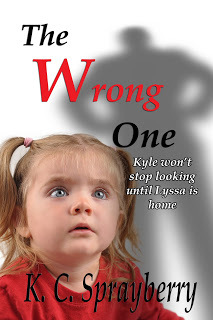
The Wrong One
Published on February 09, 2016 00:00
February 8, 2016
The Interview Part I ~ Preparing
You’re about to appear on a local television show or radio broadcast. Perhaps it’s an interview with the newspaper or on a podcast. Here are some very important things you need to know.
In part one, we’re going to discuss how you should present yourself. That’s pretty important, since the person interviewing you will get their first impression of you in less than a second. Here are a few tips of things you should avoid when preparing
Be neatly attired. Most people don’t have to be reminded of this, but you should remember that the clothing you wear to an interview should be much like that you’d don for a job interview. That is, to say, don’t try out the latest fashion where your brightly colored clothing barely covers your body. Think conservative. Jeans are fine, as long as they’re not holey or patched. For ladies, if you wear a skirt, make sure it’s comfortable to sit in for long periods of time, and that it’s not so short a distance camera shot exposes what you don’t want the world to see. Slips of that nature are forgivable for starlets, not an aspiring author.
Be well groomed. Men, trim your beard and mustache, and your hair. Make sure it’s combed neatly. Ladies, make sure your style will hold up under hot camera lights, the makeup too. Use deodorant but not one that has a heavy scent. In both cases, avoid overpowering perfumes and body sprays. Jewelry should be limited to discrete earrings, necklaces, bracelets. Now is not the time to decide to try the latest tattoo or piercing fad. Remember, always make a good impression—your potential new readers will want to know they can connect with you, even in a visceral way.
Fresh breath is a must. Keep a small container of breath spray to deal with coffee or tobacco scented breath that came with the trip to the studio or newspaper office.
The biggest thing to remember is that you should appear for an interview in a way to impress, not distress. The only statement you should be making is that you are an author worth knowing.
Published on February 08, 2016 00:00
February 4, 2016
The Solstice Publishing Valentine’s Day Extravaganza
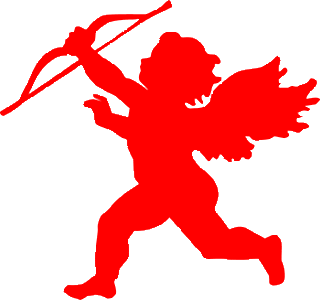
Solstice Publishing began 2016 by winning the 2015 Preditors & Editors Poll for Best Print/Electronic Book Publisher. Our authors are now going to show you why we’re the top in this field.

Summer Solstice Publishing is proud to present not one but three anthologies and a short story for Valentine’s Day this year.
First Love

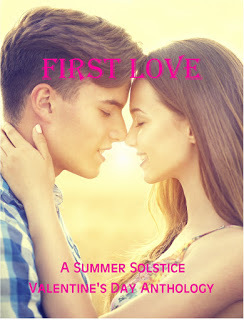
That magic moment for a teen. The realization that the person you’ve liked is a little more than a friend. Chance meetings. Old friendships. Even a social media post. These can all lead to that first love.
Authors M.A. Cortez, Gloria Weber, Vanayssa Somers, Margaret Egrot, Josie Montano, K.C. Sprayberry, Pauline Prentiss, and Mya O’Malley bring you tales of teens in the throes of their first romance.
First Love

Published on February 04, 2016 13:00
February 2, 2016
Safe in School
School violence is a problem that began in the United States in the eighteenth century. But it’s not restricted to this country now. The incidents of school violence occur all over the world daily. Some problems are minor and handled quickly. Others require intervention at a level no one wants to see.
A school shooting used to be handled by telling teachers to lock the doors and “shelter in place.” Students in the hallway were told to run. That works—to a degree.
Today, people are being told to use CO2 fire extinguishers to “disable” the shooter, by aiming for the eyes, nose, and mouth. Someone intent on harm won’t be able to shoot at the people in a school if they can’t see or breathe. Another item being touted is a new “blanket” that allows students to kneel on the ground and cover themselves with it. This “blanket” will deflect bullets, but one has to wonder how it will work since the sides are exposed.
Let’s face it. Schools have long been designated “gun free zones.” Law abiding citizens obey those rules and don’t bring a weapon with them to their child’s school. The people who do this are criminals. They don’t care about laws. A sign that a place is a “gun free zone” is an invitation to them. They figure nobody will stop them.
However, with some planning, students and teachers can overcome a shooter. What are those measures?
Run smart. Yes, I can hear the comments now. A panicked person just runs. They don’t care about smart, but it can be done. Once the shooting starts, don’t run blindly in any direction. Stop at corners. Check around them as best you can. Take cover if the shooting is near where you are. In other words, swallow the panic and think—that can save your life.
If you’re caught in a classroom, don’t sit still waiting on the shooter to enter. Prepare. Fire extinguishers are a good weapon. Once they run out of the CO2, throwing one at the shooter will cause them to duck. The same goes for anything heavy you can put your hands on.
Pay attention to what’s going on around you at all times. Don’t be caught short because you were laughing with your friends. If someone is acting weird, tell a teacher. Maybe it’s nothing and you suffer a little embarrassment. Or maybe you’ve just spotted a bad situation in the making.
In Take Chances, Julie finds herself in a shooting situation. She’s unsure what to do, but thinks instead of reacting. It’s a lesson all kids can take away—thinking instead of panicking will help you get away.
Blurb
Julie Bond grew up in Europe as a military brat. She found her very first permanent home in Landry, GA as a teen going into high school. Almost four years later, she's having pre-graduation jitters and flashing back to an incident of school violence she experienced in Europe. She attempts to convince herself that it can never happen again, but continually finds herself flashing back to that day no matter how hard she tries.
The people around her present any number of problems for Julie, and she's hard put to keep from drowning under all the issues. Then Michael--a cool guy she's had a crush on for the last three years—returns from traveling the US as a photographer, and Julie now has one more thing to distract her as she prepares to leave high school. One thing she firmly believes in: no one will ever invade her classroom with violence again.
Once again, the impossible happens. Once again, she's in a classroom with a madman holding a gun. Once again, she must survive.
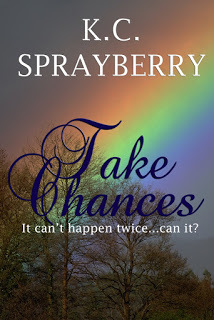
Take Chances
Published on February 02, 2016 00:00
February 1, 2016
Your Marketing Plan
Scary thought. How will you market your book? The internet is full of places where authors can go to find ways to do this. You, as the author, will need to decide exactly what works best for you, but you can be assured that in this competitive book marked you might be asked to provide an online marketing plan by the publisher you’ve submitted to.
Your first thought is going to be along these lines—Is this person kidding? How am I supposed to figure out a marketing plan? What do I do? Doesn’t the publisher take care of this?
To answer the last question first, unless you are a major author, one whose books hit the best seller list within hours of release, no publisher markets your books online for you other than the basic #NewRelease tweets and posts on Facebook. The bulk of marketing is up to you, the author. This is your book. You are the person who knows it the best. Therefore, it is up to you to develop a marketing plan.
How does one figure out a marketing plan? Most publishers now have authors pages on Facebook, where you can meet with other, more experienced authors who have been doing online marketing for a while. But you won’t be able to get there until you have signed a contract. What you can do to provide a marketing plan if a publisher asks is to connect with authors through their pages and ask what they do.
The bare basics of your plan should include the following:
Facebook fan page. This should be up and active long before you query a publisher. Post about your work. Share your blog posts here. Talk about writing related issues. Even post about events as they relate to your book. Sharing writing related memes is also good. While you’re doing this, you should also be building your fan base. Initially, you ask people you know to join in the fun, but eventually, by making your page public, you will see new fans jumping into the activity.
Twitter: It’s not just about tweeting your books that builds your following here. You need to connect with people that have similar interests. Don’t just retweet and run. Comment on tweets you find interesting and funny. Follow the well-known authors (although they may not follow you back just yet). Use a site like Tweet Jukebox to send out not just your tweets but also pictures and quotes. Your twitter feed should be about more than your writing. This is where you can shine with your public persona.
Blogging. I know. People say blogs are dead. They’re not, according to the thousands of bloggers doing this daily. As an author, it’s important for you to have an active blog. You can get yours started by talking about your journey to publication. Hook up with authors in your genre. Let them know that you’ll do their spotlights, cover reveals, or book release blogs, and in return, you’d like the same thing when it’s your turn. The writing community is huge. We don’t compete with each other as much as we offer assistance to other authors when it’s their time to shine.
Website. This isn’t necessary until your first book releases. At that point, you need to make sure your website is interactive. Don’t just create a website and then let it sit around without updating it. Update your information as is necessary. Change the look. Share this and invite people to follow it, if your provider offers that option. Make your website the go to place for seeing all of your books and where to purchase them.
These are the important things to include in your online marketing plan. As an author, you will also need to develop an offline persona. This involves getting in touch with local television, radio, and newspapers. Be bold. Be brave. Breach those walls and make them want to interview you. Don’t just say that “I’m an author and my book will release this date.” Proudly hand over your shiny, new business cards and announce, “I write fiction novels in (whatever genre) and am about to have my first book released by ABC Publishing. I believe this book will be of great interest to those that watch/read (name an interview show this station does or the newspaper section you’d like your book featured in). Don’t be shy and don’t stutter out your spiel. Give these people the impression that you are about to become the next great author and they want to get in on the ground floor to talk to you.
This is just the beginning, but it’s a great start. Follow up on everything you do. Online and traditional promotion is a daily task that might seem boring at times, but it is the best way to get your book and you known to the public.
Published on February 01, 2016 00:00
January 26, 2016
Everybody Does It…
Texting and driving is about as dangerous as it can get. Your attention is off the road for more time than it needs to be. In fact, your attention should never be off the road if you’re driving.
Teens today are connected with the world via social media. Their phones are as much a part of their lives as were the pages most of their parents carried many years ago. The one major problem with smart phones is how they can distract a driver at the moment when they need to be concentrating the most.
There’s even a new phrase being bandied about while doing this—Driving while intexicated.
Here are a few facts most people don’t know.
At any given time, 660,000 drivers on the road are texting and driving. That five second text you just sent while ignoring traffic around you… at 55 MPH, you just went the length of a football field without looking at the road.
So not cool.
Eleven teenagers die every day from texting and driving. Oh, you say, that’s not many. Well, think about it this way, 4,015 teens die every year doing this dangerous activity. And if that doesn’t rock your world, how about this…
If you cause an accident while “driving while intexicated,” you will be charged criminally. Those charges can range from a ticket that will cost a lot of money and probably the right to drive with a valid license for a year to defending your indefensible actions in court because you injured or killed someone.
Still think it’s okay to text and drive?
Think about this. Like drinking underage, driving while intexicated will ruin your life. Once caught, you will have a criminal record. You’ll find the college you’ve had your heart set on doesn’t want you any longer. The career you desired is now forever lost. Your friends might say you’re cool, but they aren’t the ones having to pay the consequences of responding to a text. That is, if you can respond. All your plans for the future might end in a second that becomes what everyone will remember about you the rest of their lives, because you won’t be around to tell them how wrong you were.
In Where U @, Trea’s dad causes problems with his inability to stop texting and driving. She lives through the horror of seeing the consequences of what he does and must stand up for what she believes in once everyone realizes who caused the accident. But even that isn’t enough to stop the temptation of answering a text, until she realizes what she almost did.
Blurb
Trea Jones has always known the bitterness of bigotry and abject poverty. Her half-Cherokee daddy disappeared thirteen years ago on the pretense of getting milk. Mama has done nothing but mourn his loss, and she blames Trea for that. Now that she's starting her senior year of high school, Trea hopes for something better, but she doesn't hold out much hope.Until …
She loosens up on some of her rules. Her guy, Dave, proves to her that she is worthy of everything the others have. The last day of classes prior to the winter break, she's ready to share some stupendous news with Dave, but tragedy intervenes when her daddy texts while driving a bus. Trea is left wondering if she can ever be free of a curse that heaps a lot of bad luck on her whenever good things happen to her.
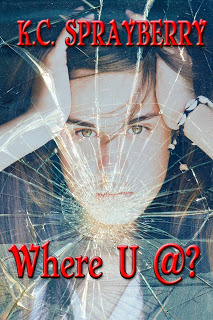
Where U @
Published on January 26, 2016 00:00
January 25, 2016
Brand Your Name ~ Part II
Once you’ve mastered your blog, Twitter, and the Facebook fan page, you need to move on to new areas where you can brand your name. Not that you give up on those social media sites, but you do need to expand into groups such as Google +, Pinterest, Authorgraph, and AUTHORSdB. These sites will allow you to connect with more readers and let people know more about you professionally.
At this point, you should be closing in on that all important release date. It’s time to start looking into places where you can talk about your book, share your blog posts, invite people to get an electronic autograph, or have all the information about your book loaded onto a single site.
Google + is a web based site where people share their thoughts, what they’re working on, and more importantly, their books. It works on the same principal as Facebook, with one exception. It’s more like an blog that is interactive all the time. Most blog sites allow you to share your work here, and that’s a good idea. Make sure you add a tidbit at the top of what you share, to gather interest so others will share your work.
Pinterest is a web based picture sharing site. Authors use it not just for their cover art but also the images they use to set up their book trailer and other interesting things, like writing based memes and pictures they find fascinating.
Signing autographs is as old as books. People are always interested in having the author add a personal message and date the signature on a print book. With the advent of ebooks, one of the things many people miss is the ability to get an autograph. That’s where Authorgraph comes in. This site, linked through Twitter, gives an author the chance to send out electronic autographs, with those personalized messages and a date if you would like to put one on there.
IMdB has been a boon to the movie industry. This massive online database gives aficionados the opportunity to look information related to movies and television shows. Now that books are available online, a new site, AUTHORSdB, is providing the same service for authors and their books. You have the opportunity to upload information about your book—the blurb, buy links, cover art, and even the book trailer—to a single site. AUTHORSdB also offers the author the opportunity to join a cover art contest, their latest news, and what services they offer other authors.
Again, these are just a few of the promotional opportunities offered to authors so they can expand their audience. Once you have learned the ways to make these work for you, start asking about sites such as Amazon Author Central, Goodreads, and Manic Readers to name a few. It’s amazing all the places where authors can go to promote their work.
Published on January 25, 2016 00:00
January 19, 2016
Let’s Party
Underage drinking is a problem everywhere. Teens will try things they aren’t supposed to. They will do what you tell them to avoid. No matter how much parents want their children to avoid the problems they had at the same age, a teenager will at some point discover that peer pressure will push them to make a decision about being part of the cool crowd or on the outside looking in.
What are the consequences of underage drinking?
First, you don’t look cool drunk. You’re stumbling and falling over. You’re loud and obnoxious. You may vomit all over your clothes and anyone close enough to get hit with the fallout. And everyone will be laughing at you, if they’re not doing the same exact thing.
Second, yes, you’re younger than your parents. Yes, technically, your reflexes are sharper, but you cannot drive when you are drunk. It’s a fact. Nearly six thousand teens a year die in drunk driving crashes. Look around at your friends. Decide which one you don’t want to see ever again, because they crawled into a car with you when you were drunk. That person might be the one whose funeral you attend, or it might be someone else. If you aren’t in jail for underage drinking and vehicular manslaughter.
Third, alcohol poisoning is a very real possibility. Once you start drinking, your ability to say no decreases to the point where you don’t know that you need to stop, about ten drinks previously. The results of alcohol poisoning are harsh—death and brain damage.
Fourth, the younger you start drinking, the greater your chances are of becoming an alcoholic. This has consequences you haven’t even begun to think about yet. Your chances of remaining in college decrease. That career you’ve always wanted? Might find that won’t happen. If you get married and have children, you might lose them as you sink further and further into the grip alcohol has on your life.
What it comes down to is that alcohol isn’t cool. It’s not something to do because you’re bored. You might swear that your town is so boring that you need to drink. Stop for a minute and ask yourself how you can make your town less boring, because nothing changes because you’re drunk.
Softly Say Goodbye is a novel I wrote based not just on what I’ve seen and read about alcohol and teens. I have memories of friends lost forever, of lives destroyed because teens just had to get drunk. The pain of those losses never goes away. It catches you during unguarded moments, and you remember how great that person was, the fabulous life that was ahead of them, but it all disappeared in an accident with booze involved.
BlurbErin Sellers, an eighteen-year-old high school senior, hates teen drinking. She and her three friends – Bill, her guy, Shari and Jake - decide to use Twitter to stop a group, the Kewl Krew, from using their high school as the local bar. But the members of this group are just as determined to stop anyone from messing up their fun. Despite veiled threats to her safety, Erin continues her crusade.
To make matters worse for her, the stress of school and extracurricular work mounts and suddenly, shockingly, booze-fueled tragedy strikes. Erin is now under greater pressure as she spends all hours to produce a mural and other work to commemorate the death of a teen friend. Bill, Jake and Shari support her in all this...
But more tragedy lurks nearby… until it’s time to softly say goodbye.

Softly Say Goodbye
Published on January 19, 2016 00:00
January 18, 2016
Rock Your Cover Letter
The cover letter is the first thing a publisher sees. It’s a place for you to tout your work, brag about yourself, and professionally request a review of your novel, to see if they would be interested in offering a contract.
As with all aspects of writing, there are rules for a cover letter. A professional cover letter will impress the individual reading submissions. A rambling cover letter will turn them off before they have the chance to look over your novel.
The first rule of a cover letter is that it must be a single page. Verbosity isn’t rewarded when writing this document. Your letter should consist of three concise paragraphs.
The first is basically an introduction of yourself. Not your bio, but that you are submitting your work, always include the title. A one or two sentence synopsis of your book is always a good addition to this area, to let the individual reading the submission know what the book is about. You might even include the genre(s) your book falls into.
In the next paragraph, you might list works similar to the one you’re submitting. Mentioning novels, short stories, anthologies, and collections you’ve had published is also good.
The final paragraph is pretty cut and dried. Thank the publisher for considering your work. Tell them that you are looking forward to hearing from them, at their convenience, and let them know that you’ve attached the documents their submission guidelines require to the submissions system.
Your final act on a cover letter is to “sign” it. In this electronic age, that usually means inserting your name and email address.
By following these simple rules, you will show you are a professional wanting to put your best foot forward. You will also show the publisher you respect that they are very busy and won’t have to waste their time perusing an extremely long letter that will repeat what is in your synopsis and/or submission.
Some things you should never include in a cover letter are long descriptions of your characters. This is something best left to the synopsis or the actual novel. Never waffle about the title of your book or expect a publisher to change it for you. A book’s title is best done by the author, but you may be asked to come up with a new one if the publisher has recently released a book by the same title or one very similar.
Also, make sure your letter is professional, not a greeting to an old friend. Publishing is a business, and all letters to a business should be done in a manner of one professional speaking to another. Leave the emoticons, cute greetings, and anything else you might use when contacting your friends out of this.
One last thing to remember—as with all elements of writing, ensure your cover letter has been spell and grammar checked. This is your first impression, probably your only chance, to impress a publisher. Nothing says you’re not serious than that all important cover letter being full of spelling and grammatical errors.
Published on January 18, 2016 00:00



